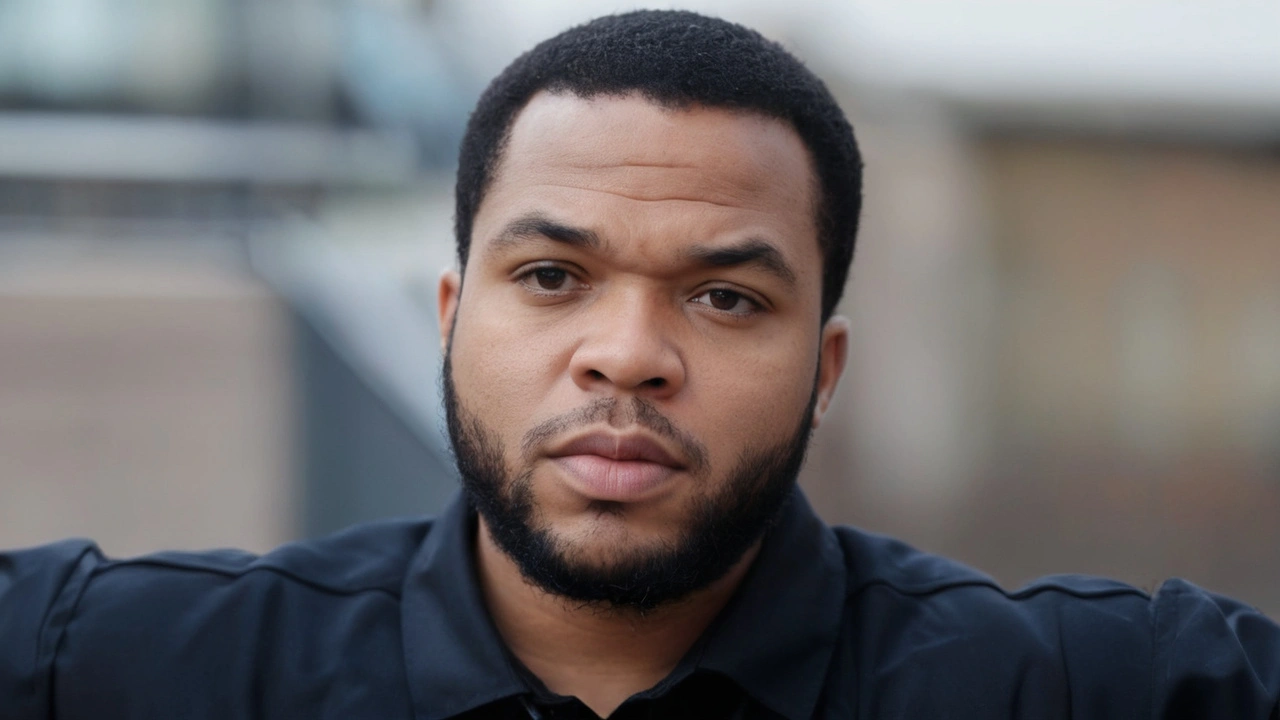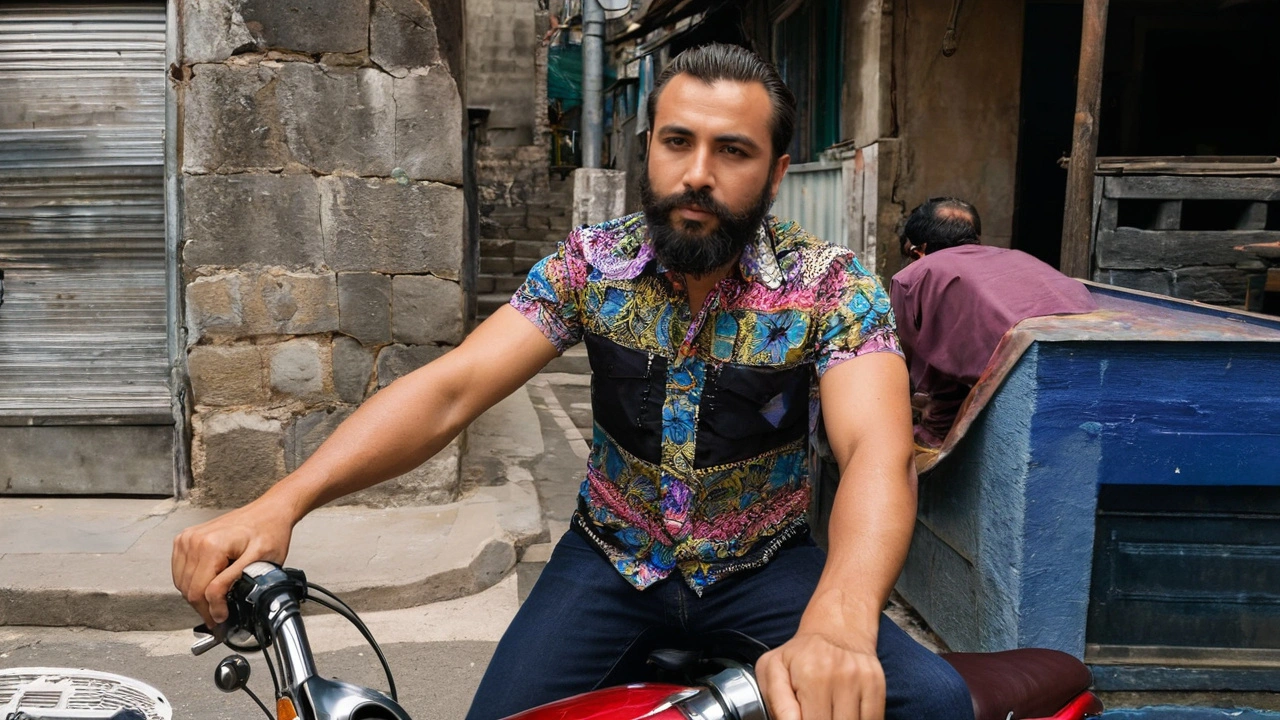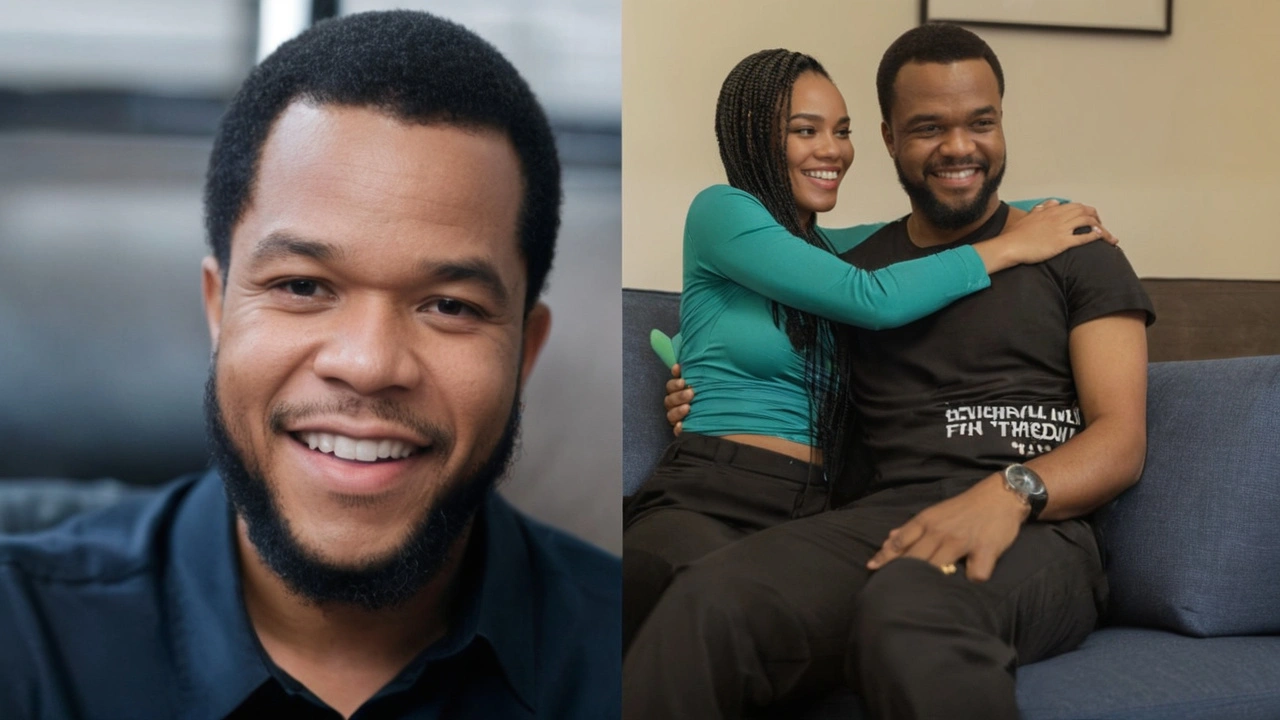Denilson Igwe Brings Allegations to Light
Denilson Igwe, once a key figure in the popular Mark Angel Comedy group, has recently come forward with startling allegations against his former collaborator, Mark Angel. The accusations, which revolve around financial misconduct and underpayment of key contributors, have set social media abuzz.
Igwe, who has been part of numerous successful skits produced under the Mark Angel Comedy umbrella, claims that despite being one of the founders, he was largely excluded from the group's financial dealings. According to Igwe, the comedy group, which boasts millions of followers and significant earnings from platforms like Facebook, has not been forthright in its financial dealings.
The Core Allegations: Unfair Compensation
Denilson Igwe's accusations paint a troubling picture of financial discrepancies and unfair treatment of cast members. He alleges that he received minimal compensation despite the group's significant revenue. A particularly shocking revelation concerns an incident in 2016, when Mark Angel purportedly bought a car. Igwe says he was offered only N50,000 at that time, a figure starkly contrasted by the group's substantial monthly earnings, especially from Facebook.
Furthermore, Igwe claims that Emmanuella, a prominent figure in the comedy skits who has garnered considerable global attention, was underpaid as well. According to Igwe, Emmanuella's remuneration was a mere N20,000 monthly, despite the group raking in approximately $160,000 monthly from its Facebook content. Igwe's portrayal of these discrepancies hints at a deep-rooted issue of inequitable distribution of wealth within the comedy group.
Social Media Erupts in Debate
The revelations have not only been shocking but have also divided opinions across various social media platforms. A significant number of netizens have expressed their support for Igwe. Many believe that his allegations are a courageous step towards shedding light on what they perceive to be unjust practices. The calls for legal action against Mark Angel and the comedy group have grown louder, with several commentators urging Igwe to pursue his case in court. They argue that only through legal channels can justice be appropriately served.
On the other hand, there is a faction that remains skeptical of Igwe's claims. Detractors have raised questions about the timing of the revelations, pointing out that Igwe chose to go public years after the alleged incidents occurred. They argue that the delay undermines the credibility of his accusations and speculate about possible ulterior motives behind his decision to come forward now. This division in public opinion highlights the complexity and sensitivity of the issue at hand.

The Broader Implications
This situation surrounding Mark Angel Comedy and Denilson Igwe has far-reaching implications, not only for the individuals involved but for the broader entertainment industry in Nigeria. If Igwe's allegations are proven true, it might prompt a reevaluation of how financial matters are handled within entertainment groups and better protections for collaborators and contributors. The controversy also underscores the importance of transparency in financial dealings, especially in the rapidly growing digital content industry.
While the comedy group has yet to issue a formal response to Igwe's claims, the attention the allegations have garnered suggests that some form of accountability or clarification will be inevitable. Many are watching closely to see how Mark Angel, known for his comedic prowess, tackles these serious accusations.

Marketplace Realities
The comedy skit industry, particularly in regions like Nigeria, has seen significant growth over recent years, largely fueled by social media platforms. Content creators, producers, and their collaborators now operate in an environment where viral success can translate to substantial financial rewards. However, with great success comes the responsibility to ensure that all contributors receive fair compensation, a point that Igwe's allegations bring sharply into focus.
Mark Angel Comedy has been a trailblazer in this domain, consistently churning out content that resonates with a vast audience. Its success story has inspired many up-and-coming comedians and content creators. However, the allegations of financial misconduct, if validated, could cast a shadow on its achievements and compel other production groups to introspect and adopt better financial transparency and fairness practices.

The Path Forward
As the dust settles from these explosive allegations, it remains to be seen what the future holds for both Denilson Igwe and Mark Angel Comedy. Will this prompt an overhaul of financial practices within the group, or will it escalate into a prolonged legal battle? The coming days and weeks are likely to provide some answers.
For Denilson Igwe, stepping into the spotlight with such serious accusations is not without risk. It represents a bold move to challenge the status quo and demand justice not only for himself but possibly for others who might have faced similar treatment. For Mark Angel and his team, addressing these allegations openly and transparently could be critical in maintaining their reputation and the trust of their loyal fanbase.
This story, with its mix of personal grievances, financial controversy, and the quest for justice, is a reminder of the complexities that lurk behind the scenes of the entertainment world. It serves as a call for greater accountability and sheds light on the often murky waters of financial dealings in the digital age.


Comments
Christian Barthelt
First off, the figures cited in the allegations are wildly inconsistent with publicly available earnings reports, and it’s essential to point out the grammatical inaccuracies in the original statement. Mark Angel’s channel consistently pulls in several million dollars annually, yet the claim of a mere N20,000 monthly for Emmanuella ignores the standard revenue split models used in Nigerian digital content creation. Moreover, the phrasing “underpaid as well” implies a comparative analysis that is absent from any disclosed contracts. In short, the financial narrative presented lacks both numeric precision and linguistic correctness.
July 29, 2024 at 03:42
Ify Okocha
The entire saga reeks of opportunistic melodrama, a classic case of a disgruntled former associate seeking attention through sensationalism. The alleged N50,000 offering for a car purchase is laughably low, and the timing-coming years after the fact-only underscores the ulterior motive of cashing in on viral outrage. Any claim of fairness evaporates when you consider the massive profit margins the group enjoys, leaving no doubt that personal grievances are being cloaked in a veneer of social justice.
August 4, 2024 at 01:55
William Anderson
Honestly, this drama feels like a tired rerun of every “rich creator cheats the poor” story you’ve seen on the internet, and it’s painfully predictable. The accusations lack any concrete evidence beyond vague anecdotes, and the emotional theatrics serve only to distract from the fact that the comedy group has delivered consistent content for years. It’s a pity that someone would tarnish a successful brand with such baseless claims.
August 10, 2024 at 00:08
Sherri Gassaway
While the polemic attacks paint a bleak picture, one might consider the philosophical underpinnings of artistic collaboration: the tension between individual ego and collective output. In this context, the alleged financial disparity could be interpreted as a symptom of deeper structural imbalances that often plague creative collectives. Acknowledging this nuance invites a more balanced discourse beyond mere condemnation.
August 15, 2024 at 22:22
Milo Cado
Let us approach this situation with a constructive mindset, recognizing that transparency and dialogue can pave the way toward equitable solutions. Open communication channels between Mark Angel and his collaborators could illuminate any misunderstandings and foster trust. By focusing on collaborative growth, the community can support both the creators and the integrity of the industry.
August 21, 2024 at 20:35
MONA RAMIDI
The melodramatic flair you display obscures the very real emotional toll such disputes can exact on those involved. It’s not merely a scripted drama; it’s a lived experience of feeling undervalued, and that sentiment deserves earnest acknowledgment rather than dismissive scoffing.
August 27, 2024 at 18:48
grace riehman
hey yall, i think its super important we dont jump to conclusions without seeing the whole picture, cuz sometimes theres more behind the scenes than what pops up on rumour mill.
September 2, 2024 at 17:02
Vinay Upadhyay
The grammatical pedantry you flaunt distracts from the core issue, which is the dissonance between proclaimed earnings and actual cash flow to contributors. In addition, the sarcastic tone undermines the gravity of alleged financial exploitation, rendering the critique superficial at best.
September 8, 2024 at 15:15
Eve Alice Malik
It’s clear that both sides have strong feelings, and sorting through the facts will require patience and a willingness to listen without jumping to conclusions.
September 14, 2024 at 13:28
Debbie Billingsley
The nationalist fervor you insinuate is misplaced; financial disputes transcend borders and demand objective scrutiny, not patriotic bias.
September 20, 2024 at 11:42
Patrick Van den Berghe
this whole thing is just another internet drama
September 26, 2024 at 09:55
Josephine Gardiner
In light of the allegations presented, it is incumbent upon the parties involved to engage in a thorough and transparent examination of contractual obligations, thereby ensuring that justice is both perceived and effected in accordance with established professional standards.
October 2, 2024 at 08:08
Jordan Fields
The claims require substantiation and a clear audit of the financial records.
October 8, 2024 at 06:22
Divyaa Patel
When we peer beneath the glittering veneer of viral comedy, we confront a paradox wherein laughter becomes a currency, yet the ledger of fairness remains shrouded in opacity. The narrative of Denilson Igwe’s grievance is not merely a tale of monetary misallocation; it is a symphony of suppressed voices yearning for acknowledgment. First, the claim of a N50,000 token for a car purchase starkly contrasts with the multi‑million dollar revenue streams that the group publicly enjoys. Second, the mention of Emmanuella’s purported N20,000 monthly stipend invites us to question the equity of compensation structures in a digital age where views translate into dollars. Third, the temporal disconnect-bringing these accusations to light years after the alleged events-suggests either strategic timing or a delayed awakening to systemic inequities. Fourth, the emotional weight carried by the accuser reflects a deeper undercurrent of frustration that often accompanies creative collaborations. Fifth, the public’s response, split between solidarity and skepticism, mirrors the age‑old dilemma of believing the underdog versus defending the status quo. Sixth, the potential legal ramifications, though speculative, underscore the necessity for clear contractual frameworks. Seventh, the industry at large can glean lessons about transparency and proactive communication from this episode. Eighth, the role of social media as both amplifier and arbiter of truth cannot be ignored. Ninth, the ethical considerations of profit sharing demand ongoing dialogue among creators. Tenth, the cultural impact of Mark Angel Comedy, spanning continents, adds weight to any controversy surrounding its internal practices. Eleventh, the responsibility of content platforms to enforce fair labor standards emerges as a salient point. Twelfth, the psychological effect on younger collaborators, such as Emmanuella, of perceived exploitation, warrants careful reflection. Thirteenth, the broader conversation about creative ownership in the African digital renaissance finds a vivid case study herein. Fourteenth, the eventual resolution, whether through reconciliation or litigation, will set a precedent for future partnerships. Fifteenth, the audience, ever hungry for humor, must remain vigilant that the joy they consume is not built upon hidden sacrifice.
October 14, 2024 at 04:35
Larry Keaton
i totally feel you on that, and i think it’s crucial we keep the conversation grounded in empathy while also pushing for concrete steps like transparent profit reports and fair contract terms.
October 20, 2024 at 02:48
Liliana Carranza
Yo, let’s channel this energy into making sure every skit creator gets the love and the loot they deserve, because the vibe we put out should match the respect we show each other.
October 26, 2024 at 01:02
Jeff Byrd
Sure, because nothing solves a money dispute like a group hug and a motivational poster.
October 31, 2024 at 22:15
Joel Watson
One must acknowledge that the discourse surrounding financial remuneration within creative collectives inevitably oscillates between hyperbole and empirical analysis, yet it remains imperative to anchor the conversation in verifiable data.
November 6, 2024 at 20:28
Chirag P
While your sarcasm is noted, it is essential to approach the matter with a balanced perspective that respects both factual evidence and the lived experiences of all participants.
November 12, 2024 at 18:42
RUBEN INGA NUÑEZ
Indeed, the insistence on data-driven dialogue serves as a catalyst for accountability, and any deviation from this standard undermines the integrity of the entire discourse.
November 18, 2024 at 16:55